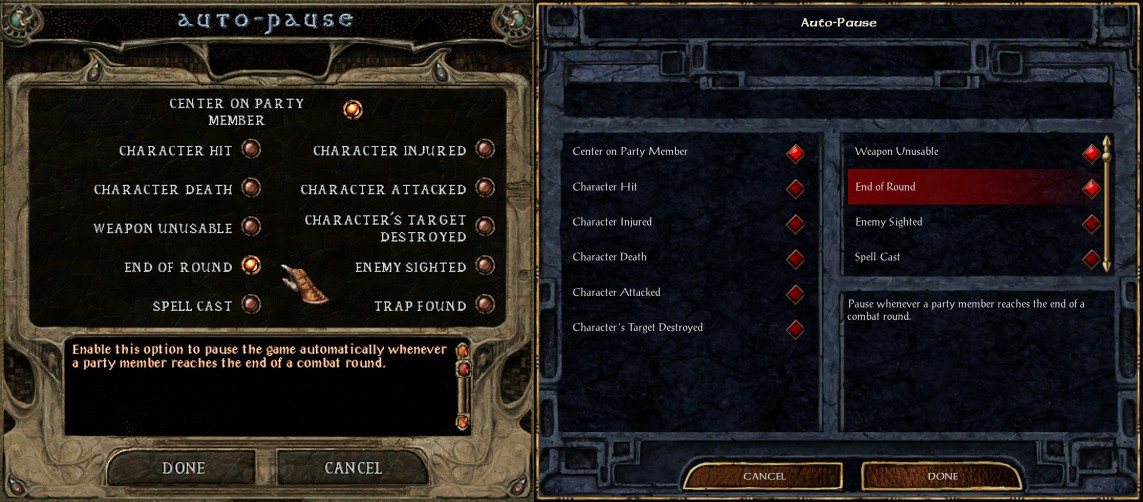Sorry but you are minimizing the role of the player in combat in order to sustain your thesis.
The player doesn't have a role.

The player is the one who picks the target (bad guy a, b, c) the weapon (sword, mace, pistol, shotgun), the spell (fireball or sleep), the item (invisible potion or healing scroll) the type of attack (fast, medium, strong) and even the body part in Fallout.
And yet... these are all options available to the PC in the moment. The player should be roleplaying the PC during combat, and effecting their probable actions.
For instance... Take Fallout: If the PC was engaged by a few opponents and Dogmeat was fighting some distance [many hex] away, and just got kicked unconscious... would the PC abandon their close quarter gun fight to go [physically] beat the hell out of the dude who just kicked his dog? Would Dogmeat's being alive or dead at the time make a difference—to them? Would he think shooting them from a distance was not enough? Would they ignore incoming attacks so long as they got to strike the dude in the groin with a sledgehammer, for kicking his dog? Or would they be pragmatic and level headed about it, and systematically eliminate their opponents one by one according to the greatest threat first? (...and allowing the dude to get away with it.)
Depends on the mentality of the character, no?
In BG much of the rest multiplied by 6. All the sensible decisions are up to the player and this is the reason why combat is fun in RPGs.
That is very subjective. Tell me... When playing Baldur's Gate, if you had a thief in the party would they case and rob the Inns? If yes, did your Paladin (or whole party) tag along to protect the thief (and win any battles against the victims) ?
Compare all this to the removal of traps in BG: your thief either sees or not sees a trap, is either able or unable to remove it. And that's it. No decision making whatsoever for the player.
To be even more clear: In order to have the same lack of agency you're advocating for the non combat part of a game in its combat part, battles should be auto-resolved by character stats.
Ideally yes, and there are plenty of games that offer an auto-resolve for combat, but the limitation here is with the developers, and the scope of their design. They cannot account for all of the dynamic possibilities, and on-the-fly decision changes. What auto-combat system would cancel a decided action in favor of another based on the changing situation. (In BG/NWN, the combatants have their own internal round clock —under the hood—, and they act whenever their option arises; many of the displayed (interim) attacks are fake, only the real ones do damage.)
No, the combatants would be evaluated by the numbers, bereft of all context. As for enjoying it—sure. That is the way combat in Wasteland, and Bard's Tale both worked.
And if you are thinking to the argument: "this is how tabletop RPGs work; this is how CRPGs should work", I'm 37, I've played and run campaigns with many different systems. I know exactly how tabletop RPGs work, but I'm also aware that, due to the widely different nature of the media involved, some mechanics are bound to be "lost in translation". So, better change them altogether instead of adapting them with detrimental results.
It's not so much lost in translation, as omitted for sloth or lack of time, or funds. A computer roleplaying game could take everything into account if they wished. The game could determine a missed attack not by random roll, but by actual collision event with a small stone in the path of the attacker's footfall; it all depends upon how deep they want to dive into it. It could be shown; animated. The PC could miss, and be shown to stumble on the rock—but it would not necessarily have to; they could just use it internally instead of randomized success... Most players wouldn't notice or care, but the results might be marginally more realistic in the long run. Modern players freak out when their character's miss—seemingly at random; especially if shown 95%—'cause they assume that it can't happen twice in a row.














